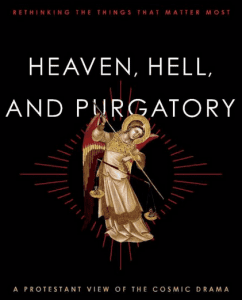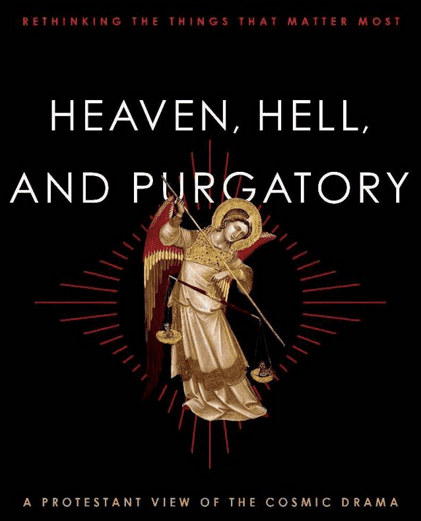 There may be glimmers or suggestions for belief in purgatory, or something like it, in the ancient Jewish and Christian world, but Purgatory as we now know it arose in the 12th and 13th Century. Some didn’t like it, and I want to look today at criticisms of Purgatory — by Lutherans, the Reformed, and by Wesleyans — and some modern criticisms too.
There may be glimmers or suggestions for belief in purgatory, or something like it, in the ancient Jewish and Christian world, but Purgatory as we now know it arose in the 12th and 13th Century. Some didn’t like it, and I want to look today at criticisms of Purgatory — by Lutherans, the Reformed, and by Wesleyans — and some modern criticisms too.
What are your criticisms for belief in Purgatory?
Here’s the big issue: without holiness no one will see God or dwell in God’s presence. Is this kind of holiness the inevitable and instant act of God at death/after death or is it a process? If the latter, Purgatory follows? Is this holiness a gift of God or is this gift part of the disciplined character of the person? If the latter, Purgatory follows.
The Reformers — across the span (including the Anabaptists, whom Walls neglects in his book Purgatory — sigh, but we bear the cross for good reasons) — thought Purgatory attacked the heart of the gospel itself. But it ought at least to be observed — Walls says — that some version of Purgatory is required. That is, somehow the humans is entirely purged of sin. I get Jerry’s point here, but God’s act vs. our cooperation are a world of difference.
The Lutherans: Luther does not overtly disagree with Purgatory itself but instead with its abuses. He expects intercession for the souls of the departed. For Luther, though, Purgatory means uncertainty and we can be assured of our salvation. Luther sees salvation as justification, not sanctification, therefore he’s dead opposed to Purgatory at some level (because Purgatory is about sanctification).
Reformed: Calvin saw it as a deadly fiction, and he too sees salvation as justification. The present life entails war against sin; at death the Christian is made holy. Charles Hodge : at death. Jonathan Edwards: after death, but he adds happiness, beauty and holiness into a brew.
Wesleyan: John Wesley was dead opposed, but Walls thinks Wesley had a theology that should have been more open to Purgatory. Wesley’s doctrine of entire sanctification in this life, though, gives Wesley a way out of Purgatory completely.
More recent: Erickson and Tom Wright are against it; Don Bloesch more open. Moltmann, Polkinghorne and Pinnock are open to Purgatory. The more open one is to human cooperation, that is to an Arminian orientation, the more open one is to the idea of Purgatory.
For Walls, Purgatory is an inference from the necessity of sanctification, and sanctification entailing human will or freedom.














